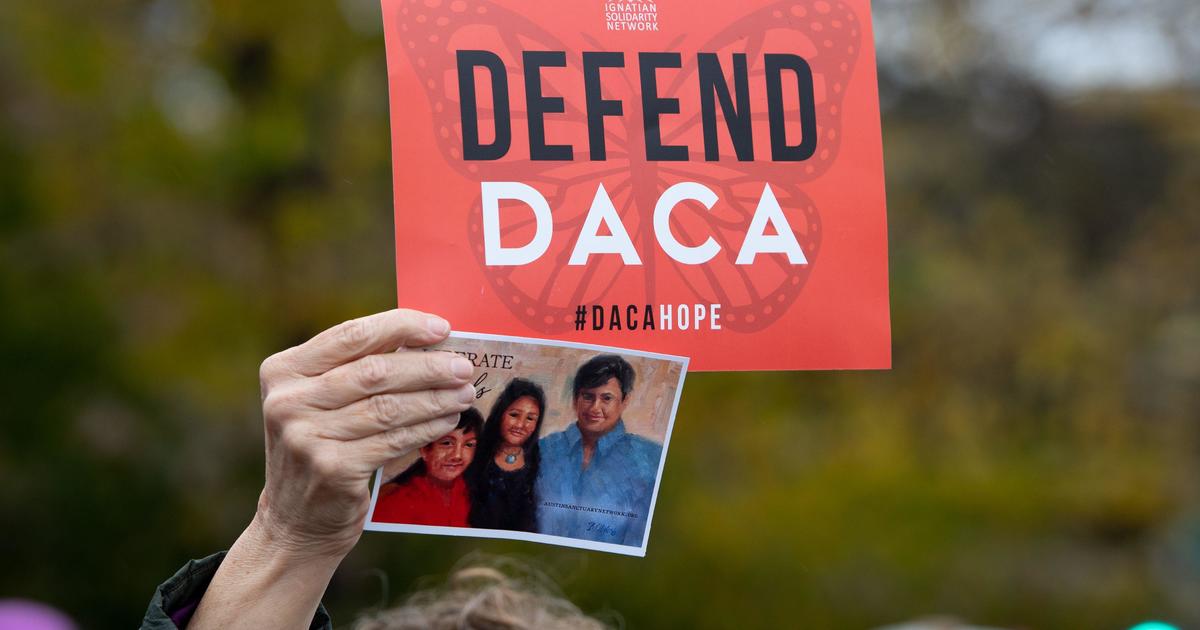The fate of the Deferred Action for Childhood Arrivals policy, also known as DACA, was once again in the spotlight as a federal appeals court heard oral arguments on Thursday. This Obama-era program, implemented in 2012, provides protections for over half a million undocumented immigrants who were brought to the United States as children. DACA allows these individuals to live and work in the country without the fear of deportation.
The legal battle surrounding DACA has been ongoing for years, with Texas and other Republican-led states challenging the program in court. The latest issue at hand was the Biden administration’s attempt in 2021 to formalize DACA by turning it into a federal regulation. However, U.S. District Court Andrew Hanen ruled last year that this move was unlawful.
Both Hanen and the 5th Circuit have previously issued rulings against the original DACA memo, arguing that the Obama administration overstepped its authority by granting deportation protections and work permits without congressional approval. Despite these rulings, DACA has remained in effect for current recipients, allowing them to renew their work permits and deportation deferrals every two years.
During the recent court proceedings, lawyers representing the Biden administration and DACA enrollees argued that Texas lacks legal standing to challenge the program. They pointed to a 2023 Supreme Court ruling which limited states’ ability to challenge immigration policies. Texas argued that it incurs financial costs due to DACA recipients living in the state and claimed that terminating the program would alleviate these expenses.
Brian Boynton, the Justice Department lawyer representing the Biden administration, urged the 5th Circuit to maintain DACA for current recipients even if they ruled against the program. The panel of judges presiding over the arguments included Jerry Edwin Smith, Edith Brown Clement, and Stephen A. Higginson, all appointed by different presidents.
The outcome of the 5th Circuit’s ruling is likely to be appealed to the Supreme Court, which previously blocked the Trump administration’s attempt to end DACA in 2020. DACA has enabled eligible immigrants who arrived in the U.S. as children to live and work legally in the country if they meet certain criteria, such as graduating from high school or serving in the military.
As of June 2024, there were approximately 535,000 DACA enrollees, with a significant portion residing in California, Texas, Illinois, and New York. The future of DACA may also depend on the results of the upcoming presidential election, with Vice President Kamala Harris expressing strong support for the initiative.
While former President Trump attempted to cancel DACA in 2017, it remains uncertain whether he would pursue this action if reelected. He has vowed to increase deportations of undocumented immigrants if he returns to the White House. The ongoing legal challenges surrounding DACA underscore the complexity and contentious nature of immigration policy in the United States.
In conclusion, the fate of DACA hangs in the balance as the courts continue to deliberate on its legality. The program has provided a lifeline for hundreds of thousands of undocumented immigrants who have grown up in the United States and contributed to their communities. The outcome of these legal battles will have far-reaching implications for the lives of DACA recipients and the broader debate on immigration policy in the country.









